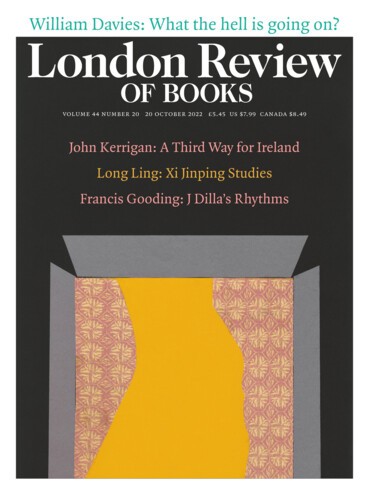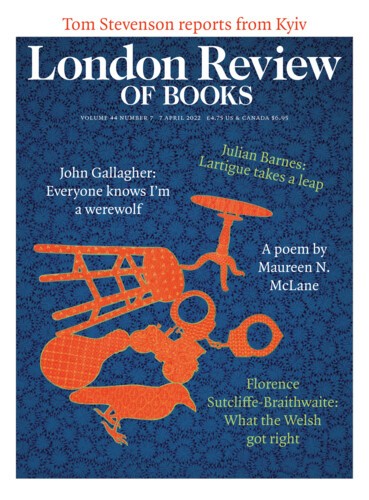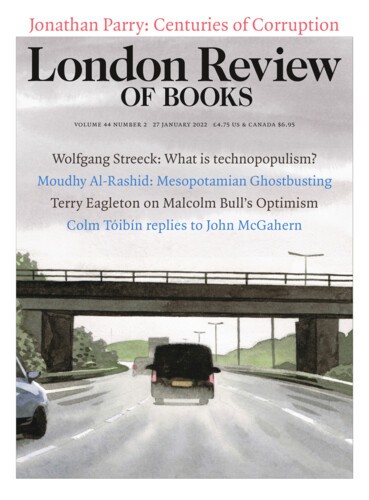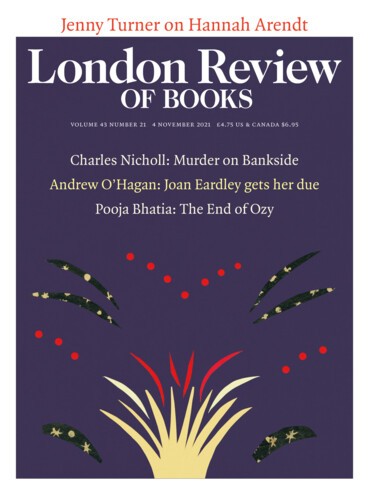Anarchist Typesetters: Hernan Diaz
Adam Mars-Jones, 20 October 2022
Katherine Mansfield's wonderfully wrong-headed criticism of E.M. Forster was that he was a dab hand at warming the pot, ‘but there ain’t going to be no tea.’ Readers of Hernan Diaz’s new novel get their first sniff of a tea bag about halfway through the book’s 400-odd pages. Trust is made up of four sections, the first presented as a complete novel (Bonds...





